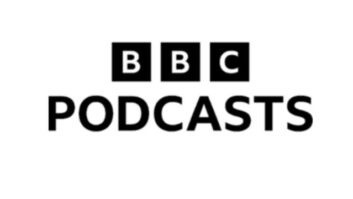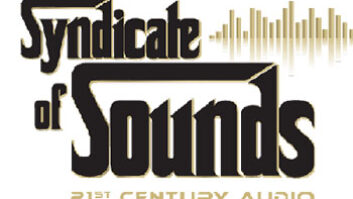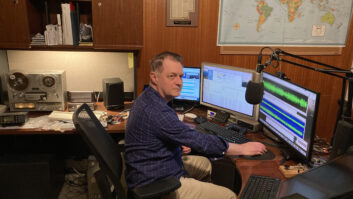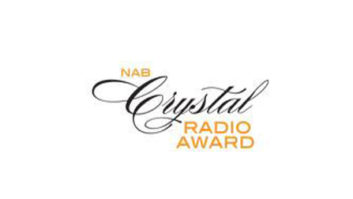The fault lines over the performance royalty issue were again exposed at a House subcommittee hearing and observers learned more about the economics of the record labels, artists, Pandora and broadcasters when it comes to streaming music over the Internet.
Rep. Robert Goodlatte (R-Va.), who’s taking over the House Judiciary Committee chairmanship in the next session, intended the hearing to be the first of several and said music licensing is an area “where it would benefit us to take a longer look.” He hoped the hearing would give lawmakers insight into the effect on Internet radio if copyright law is changed.
Current House Judiciary Committee Chairman Rep. Lamar Smith (R-Texas) said rather than increasingly relying on compulsory licenses that forces “the government to choose winners and losers, we should move to market-based solutions.” As it most likely will, the Texas Republican hopes the debate continues into the next Congress, saying “Balance, fairness and equality requires us to move with deliberation.”
We noted yesterday that Michigan Democrat Rep. John Conyers said the name of the “Internet Radio Fairness Act” up for debate is misleading. He noted the Tea Party, tax groups, the AFL-CIO, NAACP, SAG and AFTRA “have strong reservations” about the bill.
He predicted the measure “may well be the catalyst to formulating an AM/FM performance right since “most people listening to a song on the radio assume [artists] were getting compensation all the time.”
Artist and music producer Jimmy Jam, who’s also chair emeritus of The Recording Academy, agreed, saying “Before we talk about rates, Congress should close the corporate radio loophole.”
The main sponsor of the IRFA, Utah’s Jason Chaffetz (R-Utah) said Internet radio could be a boon, however many companies, like Yahoo and AOL, had to get out of it because the economics don’t work because of the music royalty rate structure. The act, he said, levels the playing field for Internet radio services, putting them under the same rate as satellite radio and cable audio services like MusicChoice. “It’s well past time to correct the mistakes, with a new understanding of how the world works,” said Chaffetz.
David Pakman, a partner in venture capitalist firm Venrock agreed, saying his firm has resisted investing in digital music, calling it one of the most perilous ventures out there. “Hundreds of millions of dollars have been lost. The digital music industry has one of the highest failure rates of industries we’ve studied. Many venture capitalists consider the space non-investible,” said Pakman, adding that companies like Pandora are gaining listeners but ultimately “are unsustainable.”
“Pandora’s doing an amazing job, but their earnings report makes it clear why they’re virtually alone in this category. Only large music companies who subsidize digital efforts can do this,” Pakman said.
Pandora has said some 50% of its revenues go to music royalties and it’s gone to bat on the Hill, lobbying for a change in the rate-setting process.
After several attempts Chaffetz pinned down SoundExchange President Michael Huppe on how much of a percentage of overall revenue the music royalty distribution organization receives from Pandora; some 60 to 70%. At first, Huppe told Chaffetz he couldn’t disclose that information. Chaffetz reminded Huppe he was testifying before Congress, could give the information, and not to say he had to ask his mom for permission.
Huppe countered that “a percentage of revenue can be misleading,” noting that Pandora “has made a business decision to focus on growing its user base, audience brand and the hype.”
Chaffetz asked Huppe to point to one other company in the Internet audio space that’s successful; he couldn’t.
California Democrat Howard Berman, meanwhile, who’s leaving Congress, told Former NAB Joint Board Chairman and Hubbard Radio President/CEO Bruce Reese that it was “disingenuous” to talk about finding a rate that would incentivize more stations to webcast “without talking about the fact that stations don’t pay a royalty. If radio stations want to be all talk radio, they don’t have to pay.”
Berman continued: “Broadcasters need to come to terms with … maybe some of your guys don’t want to webcast. I think you’re going to have to come to terms with free doesn’t work anymore. In a music fairness act, it’s a huge albatross around this legislation’s neck not to deal with broadcasters.”
Reese had said many radio stations don’t webcast because the music royalties they’d need to pay under the current rate structure don’t cover the cost of streaming. Hubbard does stream its stations and has done no better than break-even doing it, he said.
Some committee members said they were tired of dealing with the performance royalty issue and it’s time for the businesses involved to work it out. Reese reiterated the NAB is not seeking a mandate and while it supports reform, it too, supports market-wide agreements, alluding to the kind of royalty deal Clear Channel signed with record company Big Machine this fall.
Despite the acrimony, Berman said the issue isn’t about music versus technology. “Musicians and artists need to get compensated and the services need to thrive.” Both represent more of a symbiotic relationship, he said. “We need to find that sweet spot.”












